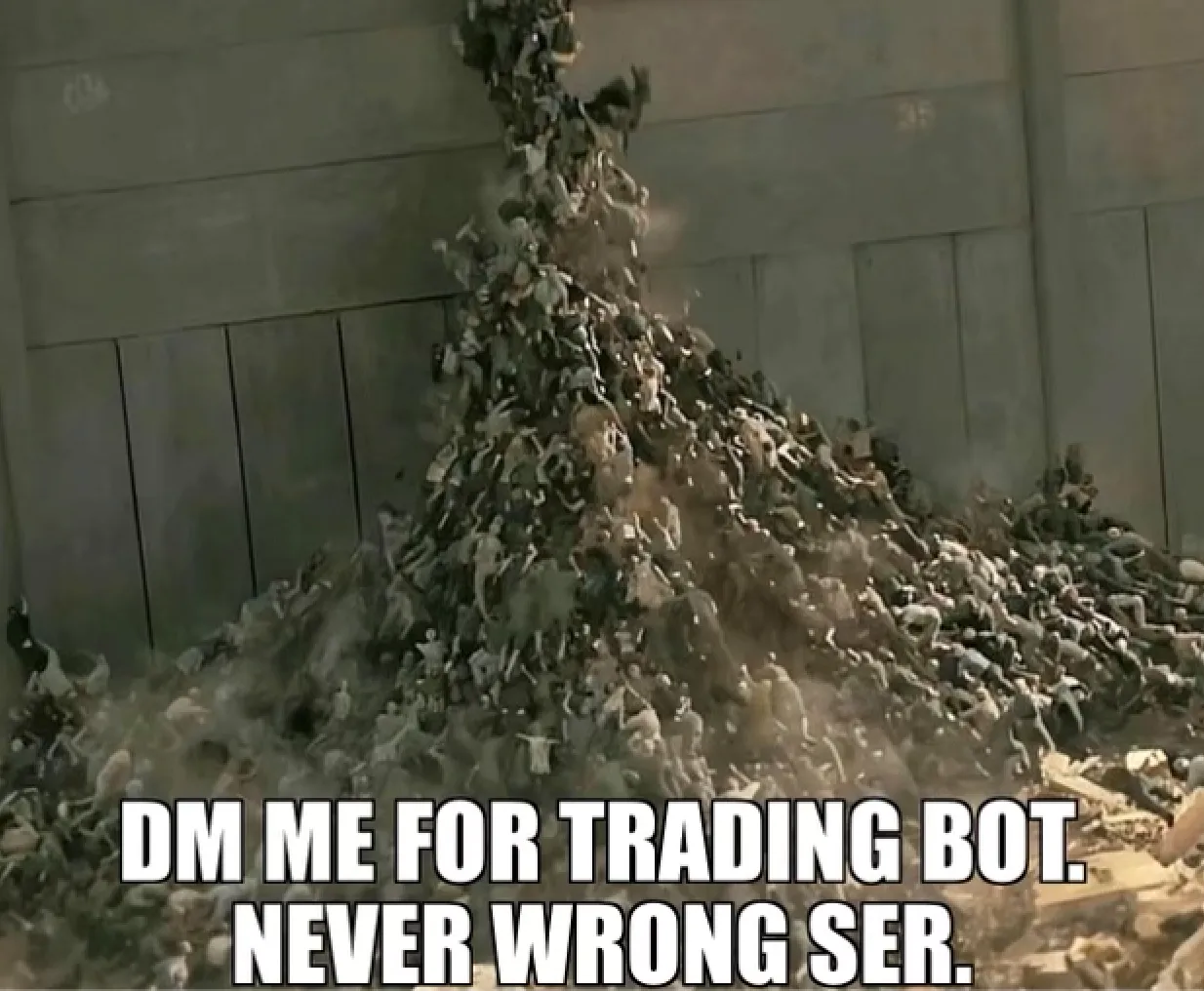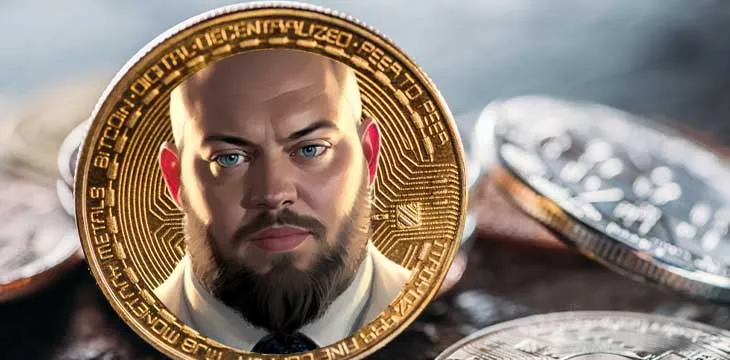|
Getting your Trinity Audio player ready...
|
Is everything in the blockchain space a security? Does Bitcoin exclusively pass the Howie Test? How do we determine the difference between a security and a commodity?
Backstory
Libertarian activism is one of the major things that got me into Bitcoin in 2012. I firmly believe that individual sovereignty in person and property should be the cornerstone of everything; and that ultimately any relationship that doesn’t start with consent could be argued to be immoral. This puts me in a position of general apprehension against institutions of regulation. To be 100% unequivocally clear, it is my personal belief that Americans are heavily over-regulated by bureaucracies, and that it should be our goal, as persons and as a people, to reduce the size and scope of government as consistently as possible until further notice.
For what it’s worth, the Securities and Exchange Commission (SEC) is not a regulatory agency. It is an oversight agency, and the specificity in terminology is an indicator that we already have too many types of agencies involved in the economic process. So how do we reduce the perceived need for the SEC such that the average voter sees them as extemporaneous, redundant, obsolete and in need of dissolution?
Well, the first step would be to individually and collectively stand against fraudulent investment activity, because every time someone successfully grifts money out of a group of people, the SEC gains more power because the average person becomes more and more likely to say “why isn’t anything being done about this?”
So, liberty begins with personal responsibility leading to a culture of responsibility.
Have we seen this in the blockchain space? No, not by a long mile. Instead, we see a culture of cyberbullying, cultism, boiler room pump and dumps, and endless armies of social engineering bots designed to simulate demand.

So, what is a security?
Securities are tradable financial instruments that represent an ownership position in a publicly traded corporation (stocks), a creditor relationship with governmental body or a corporation (bonds), or rights to ownership as represented by an option. Securities typically involve more complex legal documents than commodities do, and the values of securities change depending on the market conditions.
The standard by which a security is determined is “The Howey Test.” A financial transaction qualifies as a security if it involves the following four elements:
- An investment of money
- In a common enterprise
- A reasonable expectation of profit
- Derived from the efforts of others
Seems pretty clear, except the test is about half a century old, and lots of interesting financial instruments have been invented in the meantime.
“Crypto” companies want to avoid having their tokens categorized as securities because it would open them up to additional regulatory scrutiny and requirements. Since securities are heavily regulated, and they must comply with a variety of laws that can potentially restrict the company’s ability to operate, launching a security token would necessarily increase disclosure requirements, limits on who can buy or sell the token, and restrictions on how it can be used in the economy. By avoiding (or attempting to avoid) the security classification, crypto companies maintain a much higher degree of freedom in terms of their operations – which is crucial since the overwhelming majority of them were just attempting to raise funds on hype and launder the profits through offshore exchanges in the first place.
As such, founders and exchanges in the crypto economy try to issue assets as “money” or “commodities.”
What’s the difference?
Commodities are typically physical goods or raw materials that can be bought and sold and have an inherent value because of their utility in the economy regardless of their price. Classical examples of commodities include precious metals, oil, wheat, and livestock. It seems the members of the SEC agree that bitcoin is a commodity, and there have been some tips of the hat to things like Ethereum in the past, although no official position has been taken by the SEC at an agency level (yet). Remember, there is a difference between the opinions of Hinman or Gensler vs the official position of the SEC. Furthermore, it is up to courts to decide if the opinion of the SEC is an accurate interpretation of the law.
So, if Bitcoin is a commodity, just like gold or oil, this should indicate that it is unchanged, unchanging, unchangeable, and that its value is derived from its inherent properties. And it is!
Well, maybe…
There is a major legal issue around the contention that BTC is “bitcoin in name only.” It’s an unpopular idea among the lasercult of small blockers, but there’s a very real argument to be made that BTC developers constitute a common enterprise, the culture has a major expectation of profit, and that the investment of money creates value derived from the effort of others.
BTC advocates argue that they are an emergent collective, but many argue they are coordinated.
We made the right call in ejecting @gavinandresen from Bitcoin.
It doesn't matter what NDAs or other agreements he might have signed with Craig Wright. Continuing to leave this up is being complicit with fraud. The ethical thing to do is rescind it and accept the consequences. https://t.co/Wb9jpPasEO
— Peter Todd (@peterktodd) February 4, 2023
- Who’s “we,” Peter?
- How did the individuals of “we” get the authority to “eject” the lead developer?
I think it is most likely that the BTC Core devs are an unlimited liability general partnership in the vein of a hobby business that passed the value threshold and become a real business by de facto, and as such, such developers have de facto fiduciary liability and whatever penalties could be assessed for creating the conditions for soft fork derivatives of BTC to be air dropped every time someone sends to a Segwit, Bech32, Native Segwit, P2SH or Taproot address…
Either that, or they’re running a corporation. The worst option would be for courts to see the BTC Core developers as a Racketeer Influenced and Corrupt Organization.
On top of the bizarre partnership that exists between the Core devs and the rest of the network, there is also the fact that BTC’s primary use for the last decade and a half has primarily been to be bought, sold and exchanged as a financial instrument, and its use as cash has a long history of largely occurring as a vehicle for avoiding taxes or in the business of illicit trade of illegal goods.
The SEC may determine that since no other commodity in history has been used more as an investment in itself rather than as a tool for driving other economic activity, BTC may constitute an expanded application of the Howey test. Consequently, the same rules and regulations for trading securities may be applied to all digital currencies—including BTC. Because of this potential categorization, those who trade BTC may be subject to the same market manipulation laws as those who trade more traditional commodities such as gold or oil, but also for engaging in the trade of an asset with unclear fundamentals, which could potentially constitute a type of fraud.
If you’re still on the fence, ask this: what commodity has a roadmap or a BIP system or the ability to soft fork?
None that I’ve ever heard of. Can gold be changed? Would it be valuable if it changed every year or two based on the whims of other people? No.
Final thoughts
Since 2016, I have been warning people that it is extremely important to use Bitcoin as cash because failure for the tool to be used in the real economy will open it up to greater regulatory scrutiny. This still stands, and it is as important as ever to be sure that the protocol is set in stone, predictable over time and used the way commodities are used in the real economy.
For this reason, I think it is very wise for BSV to continue to get in front of the regulatory and legal storm that is coming for all digital currencies by hardening it toward absolute protocol ossification. We also need extreme clarity about the difference between software vs protocol and the importance of a clearly written protocol spec and legal opinion about network and database governance in a distributed cash system.
On these topics, ideas harden as they are tempered in the courts, and whether we like it or not, law is coming.
Watch: The history of money and the future of Bitcoin

 07-12-2025
07-12-2025 





